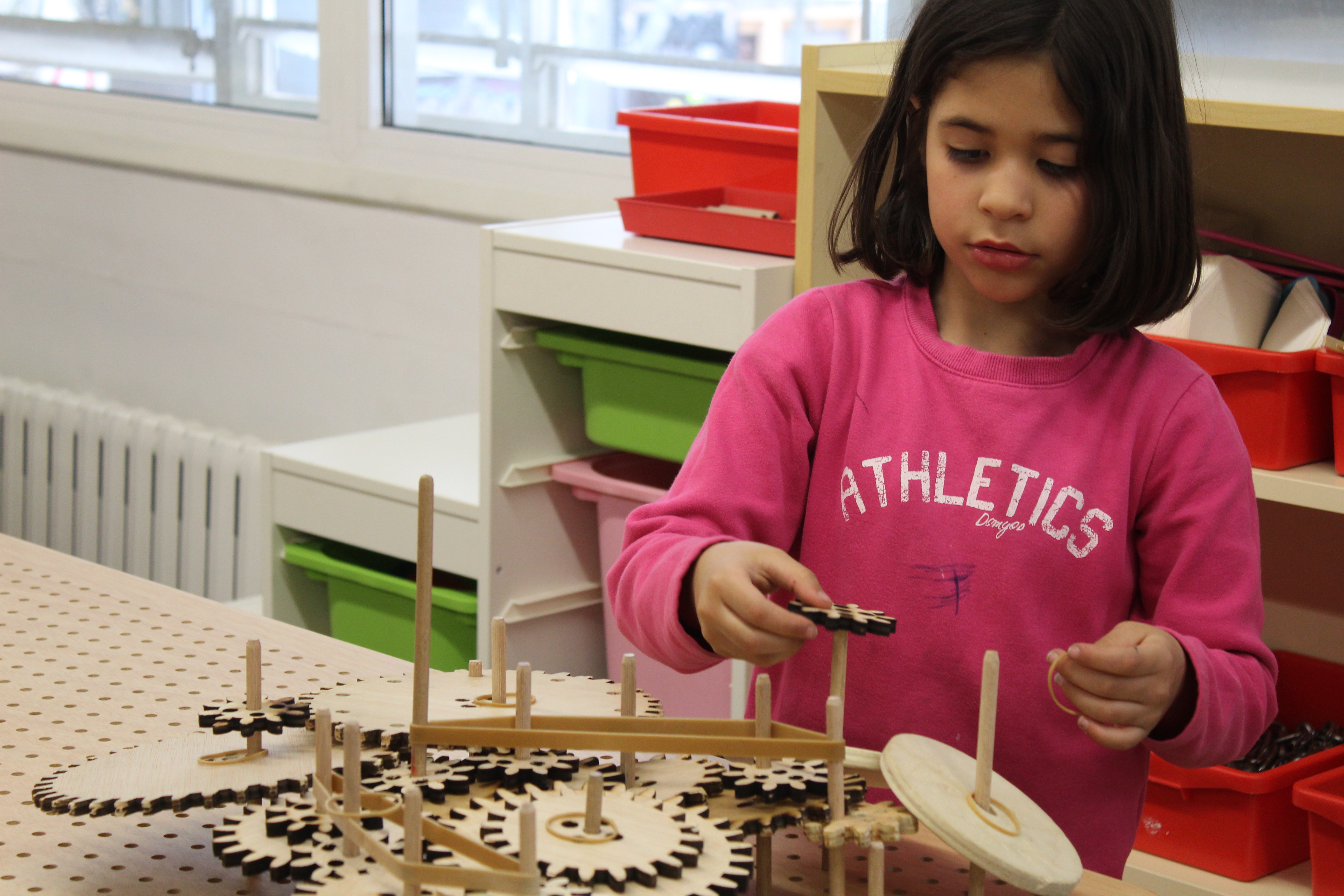Magnet projects: projects that transform Magnet schools
02/12/2020

Magnet projects are initiatives that define, identify and showcase Magnet schools. The programme’s training coordinators Sílvia Zurita and Xavi Geis explain how to implement actions that have an impact on the whole school, even beyond its walls, associating those actions with the knowledge of the partner with whom they are in an alliance.
One of the primary goals of the Magnet programme is to support schools to carry out quality, innovative projects which become benchmarks in their areas on account of alliances with institutions of excellence and which make it possible to appeal to families from the local area.
Accordingly, the Magnet programme becomes a driving force for methodological change at the school, making it possible to:
- place pupils at the heart of the learning process, to make them the active subject;
- assign teachers a new role so they may become facilitators and supporters of socio-educational processes; and
- work on the syllabus from a skills-oriented perspective, so that learning becomes meaningful and purposeful in specific settings and articulates thought, research, communication and action.
Magnet projects; transformative projects
A work dynamic of this kind entails a major change when it comes to pedagogical practices. To bring about this change, schools start to generate magnetism, working on small activities that involve the partners and allow to learn, share and perform tests in a safe environment. These small projects will ultimately lead to Magnet projects, which substantially involve the methodological principles that define them as Magnet schools as mentioned. These projects end up constituting a substantial change that impacts the whole school and leads to changes in various spheres as it is implemented.
Inspired by the Escola Nova 21 tractor projects, the Magnet projects are interventions and initiatives that define, identify and showcase schools as Magnet schools or secondary schools. They are projects that associate the knowledge of the partner institution with learning; projects that have a bearing on the whole school and which must be disseminated beyond its walls, reaching out to families in the area.
Consequently, Magnet projects go beyond individual changes that may be made by teachers, occasional external initiatives or transformations that are not continued; i.e., we cannot consider improvements to existing processes in the school or changes that are implemented in non-gradual steps as being Magnet projects. Magnet projects must be based on continued collective initiatives, rather than on bureaucratic administration documents, and must include various spheres of the school.
Assessing a Magnet project
In order to assess and gauge the transformative potential afforded by the Magnet project we will use as a basis the four strategic dimensions in the programme which are set out in the document Guidelines for delivering a Magnet project with the following questions.
The alliance with the partner institution
- Has the project been designed in conjunction with the partner institution?
- Does it enact skills- and experience-oriented learning situations based on the proposals from the institution?
- Is it conducive to the acknowledgment of the work of each agent whereby everyone can ensure their own work and that of others is showcased, disseminated and valued?
- Does it capitalise on the knowledge and resources the institution benefits from to enable the school to acquire expertise and strategies that may be applied in its classes?
The incorporation of the institution’s knowledge into the school’s routine functioning from a globalised perspective of learning
- Does it help pupils benefit from a more active role?
- Does it encourage pupils to feel that their thoughts, ideas, interpretations and depictions of reality have value?
- Does it invite pupils to question things, to imagine, to feel committed to the subject matter and to the group?
- Does it connect with the local area, with reality, with the partner institution, with individuals and with ideas?
- Does it help transform the function of teaching staff?
- Does it create genuine situations and scenarios, challenges, queries, questions, anticipations… longing to learn?
- Does it succeed in making the initial question significant and does it maximise its potential, even if it was not posed by the pupils?
- Are tasks pupils perform and aspects they learn ultimately shared?
The consideration of learning as a process of investigation that entails: action-thought-communication
- Does it help to transform the organisation of the school and ensure it serves to better develop learning?
- Has this project been created on the basis of engagement with an adequate number of teachers?
- Have teachers’ assembly meetings been devoted to planning and monitoring the project?
- Does it help shift the approach towards assessment?
Involvement of families, external dissemination of the school’s project in the local area and the search for alliances
- Are pupils placed at the heart of the process so they can tell others about their learning experiences and communicate interactively with persons external to the school setting?
- Is what is conveyed meaningful and does this have a direct impact on how it is received by the intended addressees (do we explain the Magnet project process and the learning outcomes that pupils have achieved)?
- Are pupils placed at the heart of their learning process and, accordingly, do they also take centre stage when they tell others about this process?
- Has the project involved any dimension out of school (has the project reached families in the neighbourhood; or has any product been generated for dissemination on social media or in the broadcast media; or has an entry posted on our website, etc.)?
Further information